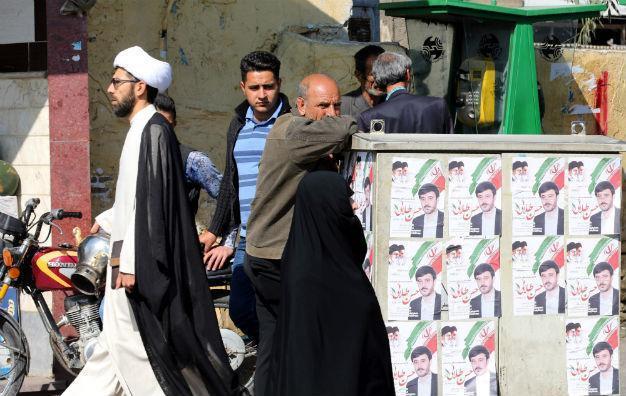Moderates test hardliners’ grip on power in Iran vote
TEHRAN – Reuters

AFP photo
The Feb. 26 vote for Iran’s parliament and the Assembly of Experts, the body that will pick the next supreme leader, have assumed an importance well beyond the perennial battles between hardliners entrenched in power and reformists seeking to unseat them.
These are the first elections since Tehran reached an accord with major powers to curb its nuclear program, leading to the removal of most of the punitive international sanctions that have strangled the economy over the past decade.
The breakthrough took place under pragmatic President Hassan Rouhani, who sees it as a springboard for Iran to reintegrate into the international community and return to world markets. But hardline opponents are determined to prevent it leading to any liberalization of the Islamic system through the ballot box.
These electoral contests are seen by some analysts as a make-or-break moment that could shape the future for the next generation, in a country where nearly 60 per cent of the 80 million population is under 30.
The outcome could be skewed by the disqualification of many pro-reform candidates by an unelected clerical Guardian Council that reports directly to Supreme Leader Ayatollah Ali Khamenei.
The stakes are high for all factions, since the outcome may well determine whether Rouhani has a mandate to push ahead with long-promised political, social and economic reforms, as well as influencing his chances of re-election in 2017.
In the final days of campaigning, the fight turned vicious.
Reflecting an abiding mistrust in Rouhani’s overtures to the West, Khamenei accused the West of plotting to influence the vote and said he was sure Iranians would vote in favor of keeping Iran’s anti-Western stance.
Rouhani, whose allies have come under growing pressure in the election campaign from hardliners who accuse them of links to Western powers, has denied such accusations, calling them an insult to the intelligence of Iranians.
Moderate allies of Rouhani, buoyed by the nuclear deal, are hoping to win back positions they lost over the past decade. But the filtering out of candidates and the slow pace of economic improvement have added to popular disillusion over Rouhani’s stalled reforms, leaving them facing an uphill battle.
